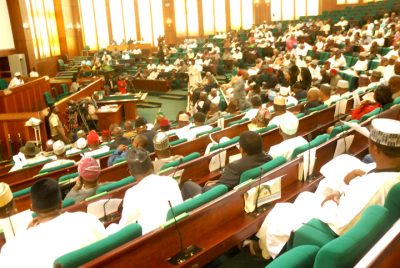A Bill for an Act to provide for the establishment of complementary and alternative medicine commission passed for third reading in the House of Representatives.
Also passed for third reading is a bill for an act to provide for the establishment of the Traditional Medicine Council of Nigeria.
The consolidated bills, which was sponsored by Rep. Nasiru Garo (Kano-APC) and two other lawmakers, seek to encourage, promote and regulate traditional medicine practice in Nigeria.
While speaking on the bills, Garo said that the importance of complementary and alternative medicine also known as traditional medicine cannot be over emphasised.
According to him, in every nook and cranny of our great country there is availability of people that provide complementary and alternative medicine services.
“I believe most of us here have benefited from the knowledge and experience of those people especially in the rural areas.
“In fact, a lot of people rely on it for their medical needs and others rely on it as their source of income and livelihood.
“The challenge is that there is no legislation to regulate the practice of this highly important and sensitive activity.”
The lawmaker said this lack of regulation exposed the practice to “unethical, crude and sharp practices by quacks and people who know nothing in the field of complementary and alternative medicine’’.
This he said could lead to a dire consequence which was better imagined rather than experienced.
Garo further said that people had suffered a lot in the hands of fake traditional medical practitioners while some had even lost loved ones.
“The purpose of this bill is to establish an agency of government that can regulate, monitor and create acceptable standard in alternative and traditional medicine industry as well as eliminate quacks.
“The agency will implement all those recommendations and there will be many other benefits which include `saving people’s lives by eliminating quacks’.
“It will create jobs and wealth for people who are willing to learn and adopt traditional medicine practice as a genuine profession and generate income for our nation by its conversion from informal to formal sector of the economy.”
He said that World Health Organisation (WHO), which Nigeria was a part of, made recommendations to all member countries at a congress of traditional medicine held in Beijing China.
The recommendations, he said, were that each nation should have national policy on complementary and alternative medicine as well as national regulation of traditional and herbal medicine.
The lawmaker also said that the WHO recommended research on traditional, complementary and alternative medicine as well as its use in primary health care.
“Some countries around the world are already enjoying this kind of policy because herbal medicine can be found anywhere today in the world at decent stores and at conventional drug stores.
“That means income for the producer of that medicine as well the originating country.
“In China for example, herbal therapy is provided in state hospitals alongside conventional medicine; which means the two systems of traditional and western medicine need not clash.
“They can rather blend together in a beneficial harmony especially at primary health care level.”
The bill passed through second reading by members when the Speaker, Mr Yakubu Dogara, put it to a voice vote. (NAN) AMM/MST

